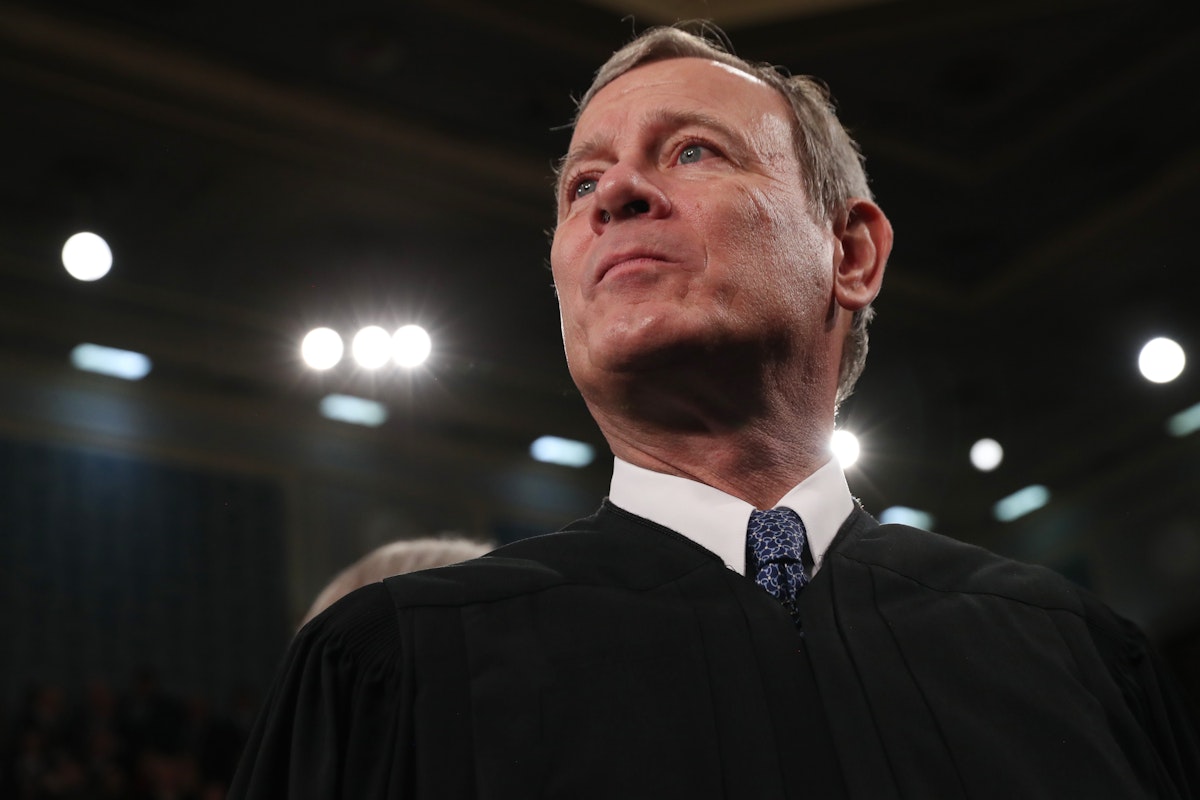Chief Justice Roberts Kicks Democrats in Teeth Over Alito
Chief Justice John Roberts on Thursday rejected a request by Democratic senators to discuss Samuel Alito’s impartiality following concerns about a pair of January 6–aligned flags that had been spotted flying at two of the justice’s residences.In a letter addressed to Senate Majority Whip Dick Durbin and Senator Sheldon Whitehouse, Roberts claimed that “the format proposed—a meeting with leaders only of one party who have expressed an interest in matters currently pending before the court—simply underscores that participating in such a meeting would be inadvisable.”The rejection follows a similar shutdown by Alito himself, who issued a letter to the pair on Wednesday stating that he would not recuse himself from lawsuits relating to the 2020 presidential election—specifically, Trump v. United States—and claiming that his impartiality had not “reasonably” come into question.Alito was accused of compromising the court’s impartiality after a “Stop the Steal” upside-down U.S. flag was spotted at his house in Arlington, Virginia, and an “Appeal to Heaven” flag—a Revolutionary War symbol adopted by Christian nationalists—was seen flying at the justice’s New Jersey vacation home.Alito has attempted to wipe his hands of both incidents, blaming the controversial messaging on his wife, whom he described as “fond of flying flags.” Her “reasons for flying the flag are not relevant” to his ability to weigh in on the immunity case, he said in his letter to Durbin and Whitehouse.But Democrats aren’t letting up on the issue, digging up alternative pathways to hold Alito to account that don’t rely on his having the final say. In a New York Times op-ed published Wednesday, Maryland Representative Jamie Raskin argued that the executive branch could still step in to challenge the judiciary’s ethics.“The U.S. Department of Justice … can petition the other seven justices to require Justices Alito and [Clarence] Thomas to recuse themselves not as a matter of grace but as a matter of law,” Raskin posited.“This recusal statute, if triggered, is not a friendly suggestion,” Raskin continued. “It is Congress’s command, binding on the justices, just as the due process clause is. The Supreme Court cannot disregard this law just because it directly affects one or two of its justices. Ignoring it would trespass on the constitutional separation of powers because the justices would essentially be saying that they have the power to override a congressional command.”

Chief Justice John Roberts on Thursday rejected a request by Democratic senators to discuss Samuel Alito’s impartiality following concerns about a pair of January 6–aligned flags that had been spotted flying at two of the justice’s residences.
In a letter addressed to Senate Majority Whip Dick Durbin and Senator Sheldon Whitehouse, Roberts claimed that “the format proposed—a meeting with leaders only of one party who have expressed an interest in matters currently pending before the court—simply underscores that participating in such a meeting would be inadvisable.”
The rejection follows a similar shutdown by Alito himself, who issued a letter to the pair on Wednesday stating that he would not recuse himself from lawsuits relating to the 2020 presidential election—specifically, Trump v. United States—and claiming that his impartiality had not “reasonably” come into question.
Alito was accused of compromising the court’s impartiality after a “Stop the Steal” upside-down U.S. flag was spotted at his house in Arlington, Virginia, and an “Appeal to Heaven” flag—a Revolutionary War symbol adopted by Christian nationalists—was seen flying at the justice’s New Jersey vacation home.
Alito has attempted to wipe his hands of both incidents, blaming the controversial messaging on his wife, whom he described as “fond of flying flags.” Her “reasons for flying the flag are not relevant” to his ability to weigh in on the immunity case, he said in his letter to Durbin and Whitehouse.
But Democrats aren’t letting up on the issue, digging up alternative pathways to hold Alito to account that don’t rely on his having the final say. In a New York Times op-ed published Wednesday, Maryland Representative Jamie Raskin argued that the executive branch could still step in to challenge the judiciary’s ethics.
“The U.S. Department of Justice … can petition the other seven justices to require Justices Alito and [Clarence] Thomas to recuse themselves not as a matter of grace but as a matter of law,” Raskin posited.
“This recusal statute, if triggered, is not a friendly suggestion,” Raskin continued. “It is Congress’s command, binding on the justices, just as the due process clause is. The Supreme Court cannot disregard this law just because it directly affects one or two of its justices. Ignoring it would trespass on the constitutional separation of powers because the justices would essentially be saying that they have the power to override a congressional command.”


